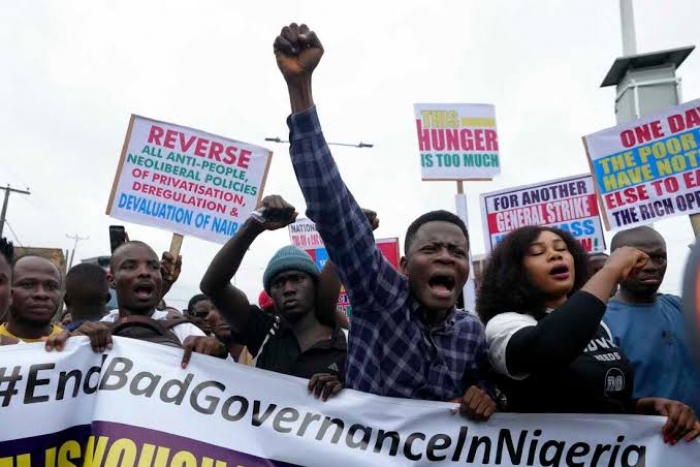Former Osun State Governor Rauf Aregbesola has issued a stark warning about the worsening socio-economic and political crisis in Nigeria, suggesting that if left unchecked, the country could be on the brink of revolution. Speaking at a national dialogue in Abuja on Monday, Aregbesola expressed grave concern over what he described as “increasing inequality, widespread hunger, insecurity, and the erosion of citizens’ rights,” all of which he believes could fuel widespread unrest.
A former ally of President Bola Tinubu, Aregbesola’s remarks came at a critical time as the nation grapples with escalating poverty, a deepening economic recession, and rising insecurity. Millions of Nigerians are enduring crippling poverty, with food prices soaring, basic goods becoming unaffordable, and violent crime spiraling out of control. Aregbesola pointed out that the growing gap between the nation’s wealthiest elite and the vast majority of struggling citizens was a ticking time bomb.
The ex-governor’s warning is especially poignant given the government’s ongoing crackdown on protests and dissent, particularly against the backdrop of the recent arrest and trial of young Nigerians involved in protests against economic hardship. Aregbesola’s call for a radical shift in governance highlights the growing frustration among Nigerians with a system they feel no longer serves their interests.
“We are seeing worsening economic conditions, where fewer and fewer people are thriving while the majority are sinking deeper into poverty. When I was growing up, wealth was not as concentrated in the hands of a tiny elite as it is today,” Aregbesola said, adding that the current trajectory of the nation—marked by a lack of basic rights and an ever-expanding underclass—may leave many with no choice but to resort to revolt.
Aregbesola, who served as Minister of Interior under the Buhari administration, noted that a key responsibility of government is the welfare and security of its citizens, and lamented that Nigeria’s current leadership has failed on both counts. “A society that cannot guarantee the safety and well-being of its people is a society on the brink of collapse. And once these basic rights are denied, people will resist, even if it leads to revolution,” he warned.
Rising Discontent and the Call for a Parliamentary System
In a broader context, Aregbesola also advocated for a transition to a parliamentary system of government, arguing that Nigeria’s current presidential system, under which power is concentrated in the hands of a single individual, is ill-suited to the country’s size and complexity. “It is unrealistic for one person to govern over 220 million Nigerians without checks and balances,” he said, noting that a parliamentary system would foster a more inclusive and accountable form of governance.
His remarks reflect a growing disillusionment with Nigeria’s presidential system, which critics argue has allowed for authoritarianism and weakened democratic institutions. Aregbesola likened the centralization of power under Nigerian presidents to a form of “modern colonialism,” pointing out the dictatorial tendencies that have characterized Nigerian leadership. “If we continue to believe that one person has the capacity to rule this country alone, we are kidding ourselves. It’s time for a change,” he insisted.
The proposed shift to a parliamentary system, backed by a bill currently before the National Assembly, aims to decentralize power and create a more cooperative form of governance. Aregbesola, who introduced a parliamentary system at the local government level in Osun during his tenure, believes such a system would be better suited to Nigeria’s diverse and populous society.
A Nation on the Edge: The Growing Threat of Revolution
Aregbesola’s warning about the potential for a revolution is echoed by many Nigerians who feel abandoned by a government that seems increasingly out of touch with the reality on the ground. The country is facing its worst economic crisis in decades, with unemployment rates soaring, inflation pushing basic goods out of reach for millions, and insecurity leaving citizens fearful for their lives and livelihoods. The hunger and deprivation felt by ordinary Nigerians have created a volatile environment where protests and uprisings are increasingly seen as viable options for change.
The recent arrest of protesters and the government’s heavy-handed response to dissent underscore the growing tension between the state and the people. Amid increasing calls for a better deal for Nigeria’s citizens, many worry that the government’s inability to address these issues will lead to widespread instability and unrest.
Aregbesola’s remarks are a stark reminder of the fragile state of Nigeria’s democracy. With a growing sense of disenfranchisement among the population, the potential for revolution—driven by the deepening crises of hunger, inequality, and insecurity—has never seemed more likely.































































